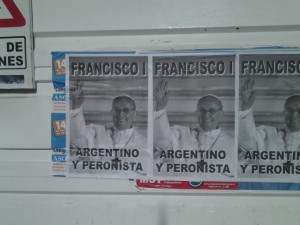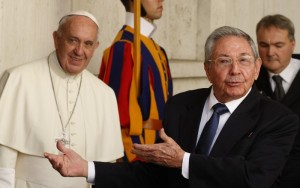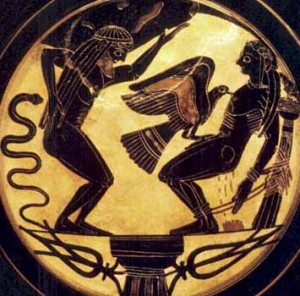 The Economist is a magazine (or ‘newspaper’ as it likes to style itself) that has badly lost its way, abandoning the quirky classical liberalism of a three or four decades ago for a bien pensant Davos liberalism that is as condescending as it is misguided.
The Economist is a magazine (or ‘newspaper’ as it likes to style itself) that has badly lost its way, abandoning the quirky classical liberalism of a three or four decades ago for a bien pensant Davos liberalism that is as condescending as it is misguided.
On occasion though, hints of the old Economist can emerge, as a recent piece in support of doctor-assisted suicide demonstrates.
Here’s an extract:
The idea fills its critics with dismay. For some, the argument is moral and absolute. Deliberately ending a human life is wrong, because life is sacred and the endurance of suffering confers its own dignity. For others, the legalisation of doctor-assisted dying is the first step on a slippery slope where the vulnerable are threatened and where premature death becomes a cheap alternative to palliative care.
It is worth interrupting to add that the argument of a slippery slope will have little resonance with someone, suffering say from locked-in syndrome, who may well believe that he has already slid down the slope and into the ditch to which the likes of Boston’s Cardinal Sean O’Malley (a prominent opponent of Massachusetts’ sadly unsuccessful 2012 right-to-die initiative) would so prayerfully consign him.
Back to The Economist:
These views are deeply held and deserve to be taken seriously. But liberty and autonomy are sources of human dignity, too. Both add to the value of a life. In a secular society, it is odd to buttress the sanctity of life in the abstract by subjecting a lot of particular lives to unbearable pain, misery and suffering. And evidence from places that have allowed assisted dying suggests that there is no slippery slope towards widespread euthanasia. In fact, the evidence leads to the conclusion that most of the schemes for assisted dying should be bolder.
The popular desire for assisted dying is beyond question. The Economist asked Ipsos MORI to survey people in 15 countries on whether doctors should be allowed to help patients to die, and if so, how and when. Russia and Poland are against, but we find strong support across America and western Europe for allowing doctors to prescribe lethal drugs to patients with terminal diseases. In 11 out of the 15 countries we surveyed, most people favoured extending doctor-assisted dying to patients who are in great physical suffering but not close to death.
No wonder that, just as adultery existed in Spain before 1978, so too many doctors help their patients die even if the law bans them from doing so. Usually this is by withdrawing treatment or administering pain-relief in lethal doses. Often doctors act after talking to patients and their relatives. Occasionally, when doctors overstep the mark, they are investigated, though rarely charged. Some people welcome this fudge because it establishes limits to doctor-assisted dying without the need to articulate the difficult moral choices this involves.
But this approach is unethical and unworkable. It is unethical because an explicit choice that should lie with the patient is wholly in the hands of a doctor. It is hypocritical because society is pretending to shun doctor-assisted dying while tacitly condoning it without safeguards. What may turn out to be more important, this system is also becoming impractical. Most deaths now take place in hospital, under teams of doctors who are working with closer legal and professional oversight. Death by nods and winks is no good.
Better is to face the arguments. One fear is that assisted dying will be foisted on vulnerable patients, bullied by rogue doctors, grasping relatives, miserly insurers or a cash-strapped state. Experience in Oregon, which has had a law since 1997, suggests otherwise. Those who choose assisted suicide are in fact well-educated, insured and receiving palliative care. They are motivated by pain, as well as the desire to preserve their own dignity, autonomy and pleasure in life.
Another fear is that assisted dying will downgrade care. But Belgium and Holland have some of the best palliative care in Europe. Surveys show that doctors are as trusted in countries with assisted dying as they are in those without. And there are scant signs of a slippery slope. In Oregon only 1,327 people have received lethal medicine—and just two-thirds of those have used it to take their lives. Assisted dying now accounts for about 3% of deaths in the Netherlands—a large number—but this is less a rush to assisted dying than the coming to light of an unspoken tradition in which doctors quietly brought their patients’ lives to an end.
How, then, should assisted dying work? For many the model is Oregon’s Death with Dignity Act. It allows (but does not oblige) doctors to prescribe lethal drugs to patients with less than six months to live who ask for them, if a second doctor agrees. There is a cooling-off period of 15 days.
We would go further. Oregon insists that the lethal dose is self-administered, to avoid voluntary euthanasia. To the patient the moral distinction between taking a pill and asking for an injection is slight. But the practical consequence of this stricture is to prevent those who are incapacitated from being granted help to die. Not surprisingly, some of the fiercest campaigners for doctor-assisted dying suffer from ailments such as motor neurone disease, which causes progressive paralysis. They want to know that when they are incapacitated, they will be granted help to die, if that is their wish. Allowing doctors to administer the drugs would ensure this.
Oregon’s law covers only conditions that are terminal. Again, that is too rigid. The criterion for assisting dying should be a patient’s assessment of his suffering, not the nature of his illness. Some activists for the rights of the disabled regard the idea that death could be better than a chronic condition as tantamount to declaring disabled people to be of lesser worth. We regard it as an expression of their autonomy. So do many disabled people. Stephen Hawking has described keeping someone alive against his wishes as the “ultimate indignity”.
Indeed it is.
But it is an indignity that men like Sean O’Malley, prelates who have been so busy of late proclaiming the primacy of ‘religious liberty’, are prepared to insist on. Liberty, it seems, is not for all.
Links
http://www.economist.com/news/leaders/21656182-doctors-should-be-allowed-help-suffering-and-terminally-ill-die-when-they-choose?fsrc=scn/tw/te/pe/ed/therighttodie
http://www.usccb.org/about/leadership/usccb-general-assembly/2012-november-meeting/cardinal-omalley-ballot-initiative-on-physician-assisted-suicide.cfm








